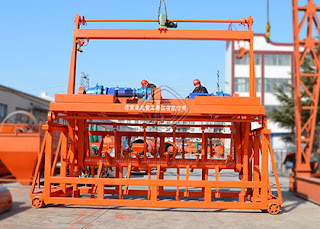How to make a commercial composting?
As a matter of first importance, plants get
their sustenance, otherwise called supplements, from the dirt. Supplements are
exceptionally little, fundamental components found in soil. For instance, in
the event that we develop onions and lettuce in a nursery bed, the underlying
foundations of the lettuce and onion plants "eat" the supplements in
the dirt. On the off chance that the lettuce and onions get enough supplements,
they will become huge enough for us to collect and eat them.
What befalls the dirt's supplement supply
on the off chance that we continue planting lettuce and onions? The dirt comes
up short on supplements. Subsequently, there must be an approach to supplant
these supplements. Matured composttakes care of this issue.
Notwithstanding sparing landfill space,
treating the soil can enable us to diminish our reliance on destructive
substance composts.
The treating the soil procedure includes
four fundamental segments: natural issue, dampness, oxygen, and decomposers.
Microorganisms and different organisms are the genuine laborers in this
procedure. When we supply natural materials, water, and oxygen, the effectively
present microscopic organisms will separate the plant material into helpful
fertilizer for the nursery.
l Decomposers – these are the life forms (microorganisms, growths, and
spineless creatures) that eat the natural material.
l Carbon Sources – materials wealthy in carbon, for example, dead
leaves, wood chips, and paper.
l Nitrogen Sources – grass clippings and most nourishment squander.
l Air – too little oxygen causes putrid anaerobic microscopic
organisms to assume control over a heap. Air can be worked into a manure heap
by turning normally.
l Water – fertilizer needs water to make the ideal living space for
decomposers. A manure heap ought to be moist like a wrung-out wipe.
What can I use to make compost?
Fertilizing the soil is a great deal like
preparing a cake – fixings are included, time is took into consideration
heating, a concoction change happens, and the last item is manure. Numerous
individuals figure soil must be added to the heap, yet in actuality soil is the
final product!
Various kinds of fertilizer need various
things. Your terrace fertilizer can deal with a great deal of natural material,
yet does not get hot enough to separate things like meat or dairy items. In any
case, Commercial composting does!
On the off chance that you have your commercial compost production with Tongda organic waste composting machines, you
can mix it up of kitchen scraps that will breakdown fine and dandy in the
gigantic heaps at the business treating the soil offices.
All Compost Types Commercial Compost Only
l Vegetable and organic product scraps Meat
and oil
l Eggshells Oil and sugar
sustenances
l Espresso beans and tea bags Sauces
(spaghetti sauce)
l Nut shells Bones
l Dryer build up and hound hair Dairy
(milk, cheddar)
l Paper Cardboard
l Herbivore pet waste (hares, chickens)
How might I begin?
To start with, figure out what kind of
fertilizing the soil you will do. On the off chance that you don't have a composting
machine, you can contact Tongda.
Next, put in a safe spot a holder in your
home for gathering fertilizer materials and put it some place simple for you to
get to. When you're prepared, take the pieces outside to your fertilizer
canister, regardless of whether that be your lawn or your city receptacle. TIP:
on the off chance that you are gathering for business fertilizing the soil and
you don't need those pieces getting excessively stinky, store your smellier
gathered manure in the cooler until pickup day.
Click here for more composting methods and machines.







Comments
Post a Comment